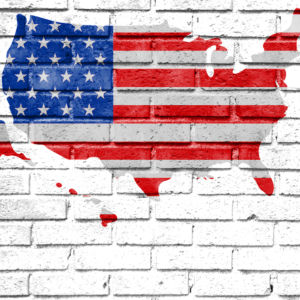In the aftermath of Donald Trump’s election to be the next president of the United States — an outcome that caught many pundits and politicians by surprise — many are now focused on how rural Americans, especially those living in the Rust Belt, voted. After all, Rust Belt states like Michigan and Wisconsin, which were presumed Democratic strongholds, went red this election. Meanwhile, voters living in rural America overwhelmingly supported Trump.
This may be explained, in part, by these voters’ desire to give a sharp poke in the eye to the so-called establishment of both major parties. In many ways, the sharp poke was needed. Wages have been largely stagnant for decades, and too many politicians are doing the bidding of rich elites instead of truly fighting for the middle class.
However, dissatisfaction with the establishment wasn’t the only force at play in electing Trump. A deeply troubling wave of white nationalist sentiment — fueled and encouraged by Trump’s many hostile remarks toward communities of color and immigrants — also played a powerful role this election.
This racist scapegoating is abhorrent and must stop. And, like much of Trump’s agenda, it will do nothing to help the economic conditions of rural, working-class America.
To be sure, a few of Trump’s economic positions are at least right in direction. Trump has correctly stated, for example, that the United States needs to invest in infrastructure, and that doing so will help the American middle class. However, what little details of Trump’s infrastructure proposal have been released indicate that he is more interested in helping Wall Street than Main Street. His plan forgoes investment in bridges and schools in hard-hit communities and instead allows wealthy private investors to reap huge profits by charging high tolls on public roads and other infrastructure facilities, increasing costs on already strapped families.
Trump is also right that trade deals have given short shrift to the interests of American workers. However, the effectiveness of Trump’s response remains questionable. Rejecting similar new deals, vigorously enforcing trade laws when companies and countries cheat, and using the bully pulpit to question CEOs who move profitable companies overseas are generally good actions. But they will not bring factories back.
At best, these actions will slow offshoring, but they may not even do that: companies that Trump has targeted still say they plan to close factories and outsource. Similarly, the extreme tariffs that Trump supports won’t create new jobs. Instead, they will be harmful to the economy, though not the apocalyptic failure some are predicting.
The rest of Trump’s agenda is likely to be unambiguously bad — especially for the middle class. Indeed, Trump has pledged to dismantle banking regulations, and thus make communities more vulnerable to another housing and financial crash. Trump’s tax plan would cut taxes for the rich by far more than President George W. Bush, while at the same time actually raising taxes for some middle-class households.
Meanwhile, instead of working to strengthen unions, as is necessary to raise wages and reduce inequality, Trump is likely to seek to weaken them. This will only hurt workers and reduce wages even further.
Over the coming months, progressives will have an important role to play pushing back on conservative proposals that would likely devastate the middle class. However, progressives must do more than play defense: they must also push policies that will improve the lives of rural working-class families across the country.
A real agenda for middle-class America would invest in infrastructure the right way, set good trade rules, promote unions and new forms of worker organization, and ensure high workplace standards — from the minimum wage, to overtime and paid leave. It would also give workers a say on big corporate decisions by putting them on the boards of corporations, dramatically increase access to high-quality apprenticeships and other training, and promote broad-based profit sharing so that when companies do well, workers do too. Importantly, it would make high-quality education — from pre-school through college — available and affordable to all.
During the campaign, Trump promised to bring economic gains to rural and Rust Belt communities. But it’s far more likely that Trump’s actions will hurt American workers and middle-class families. Although some of Trump’s supporters may be OK with that because Trump has, in their eyes, legitimized the scapegoating of people of color and immigrants, others may realize Trump was never their champion. Progressive policies, on the other hand, can actually strengthen and grow the middle class — and these solutions are gaining more and more followers.

